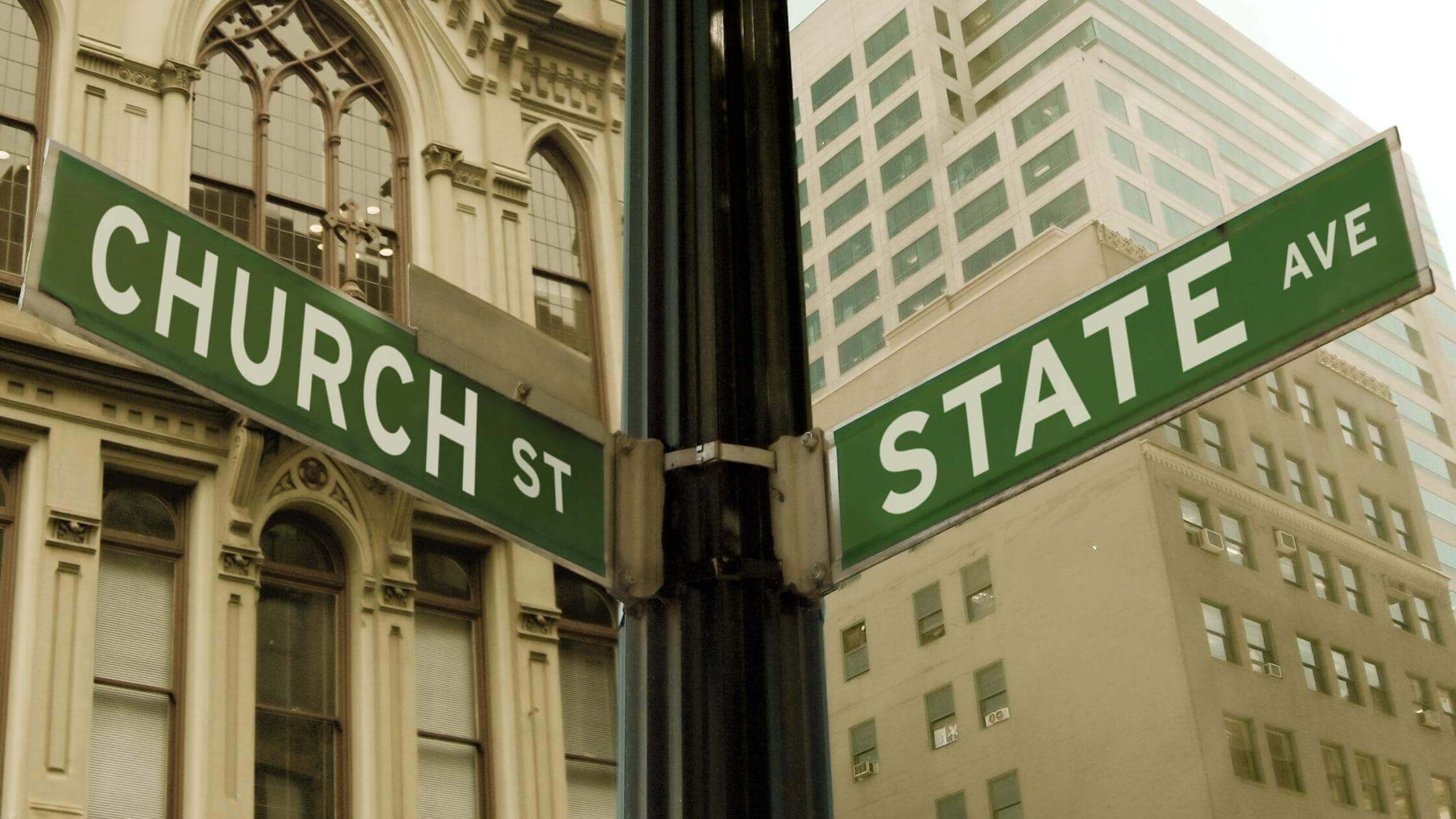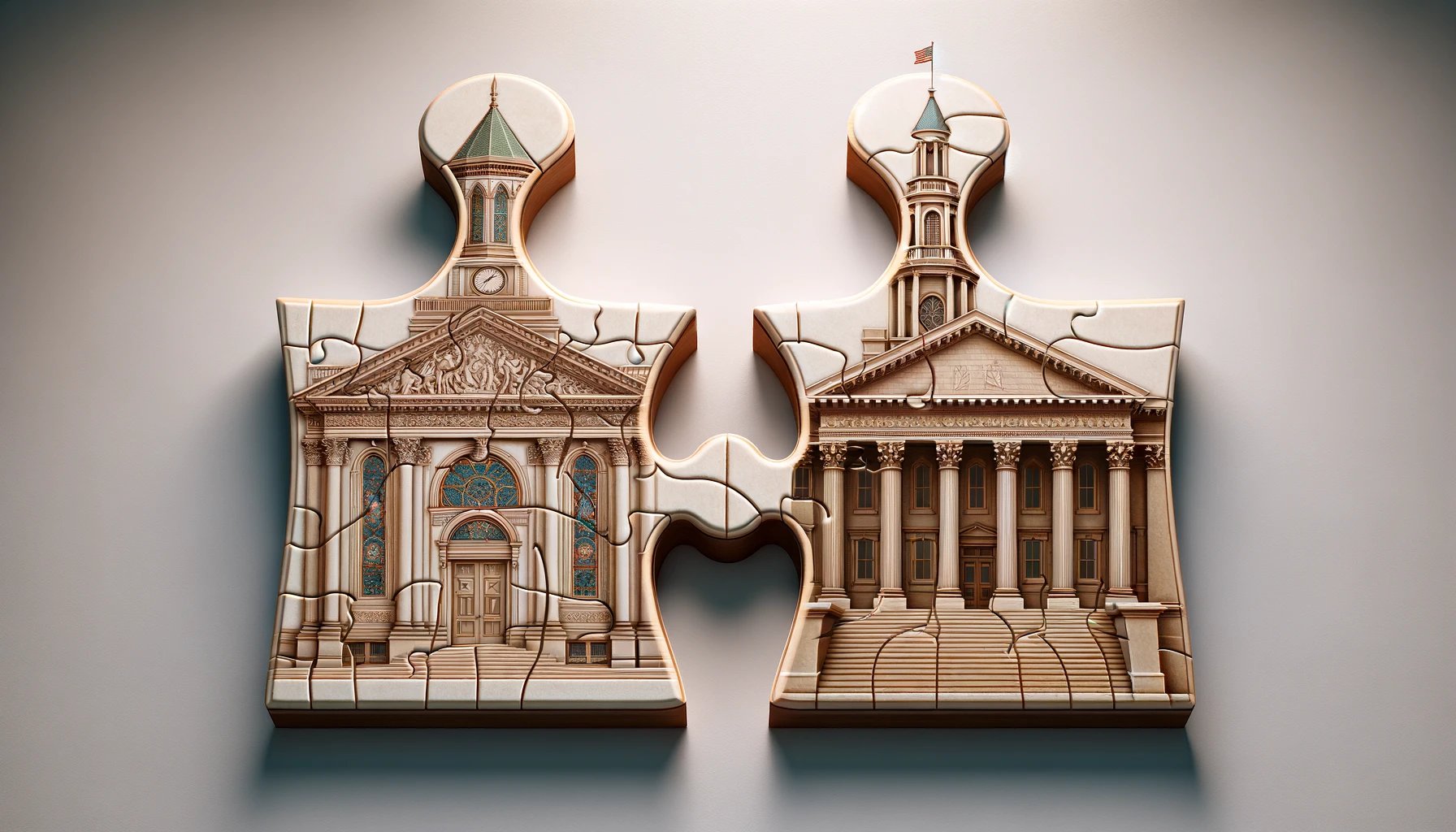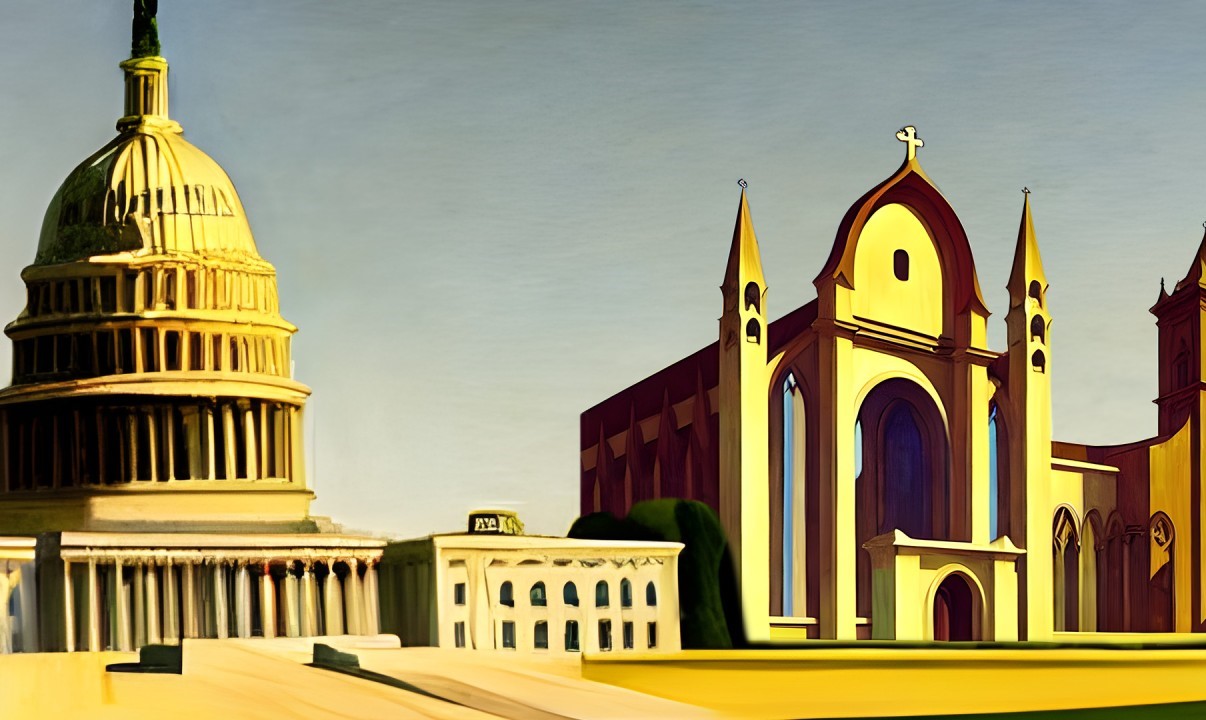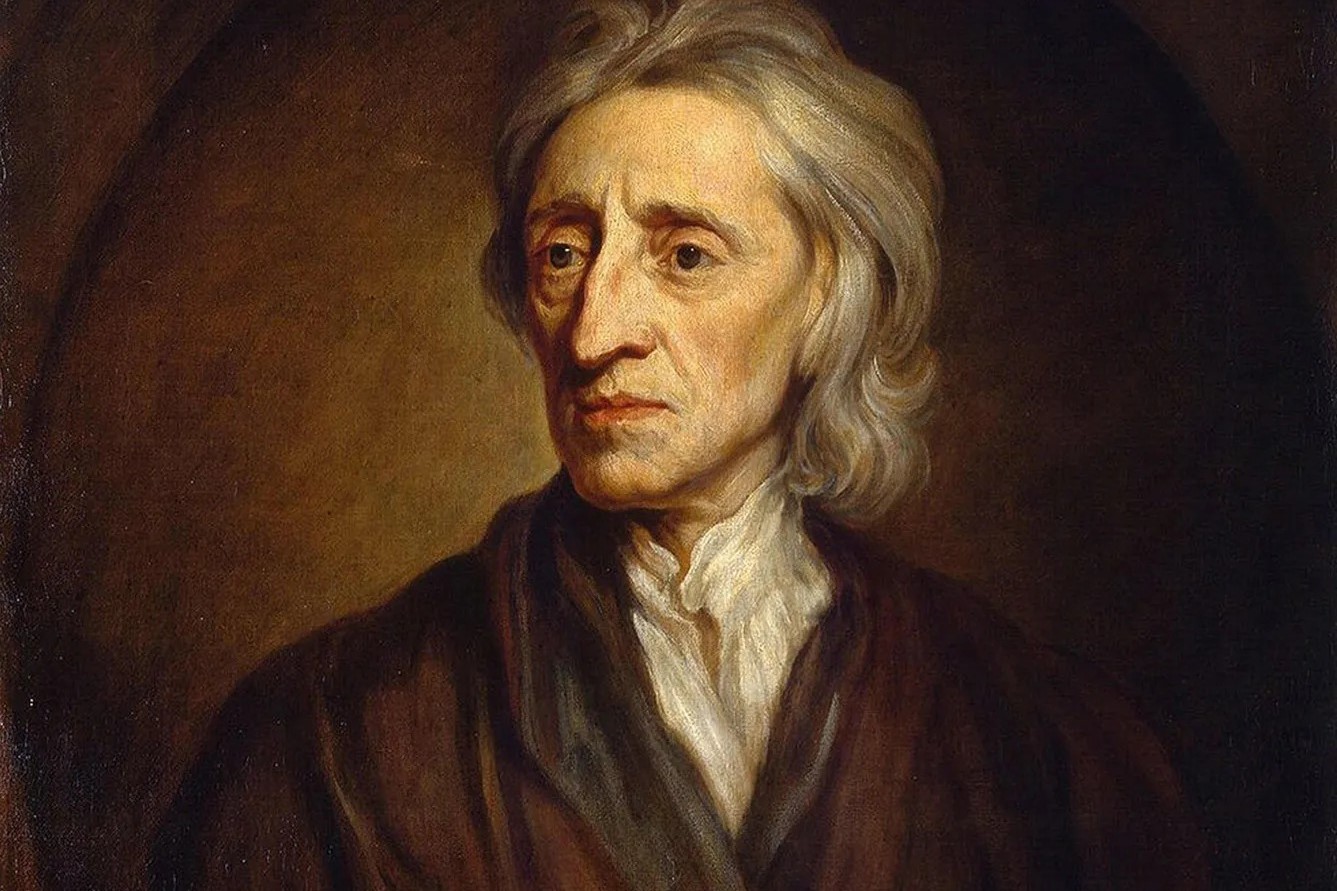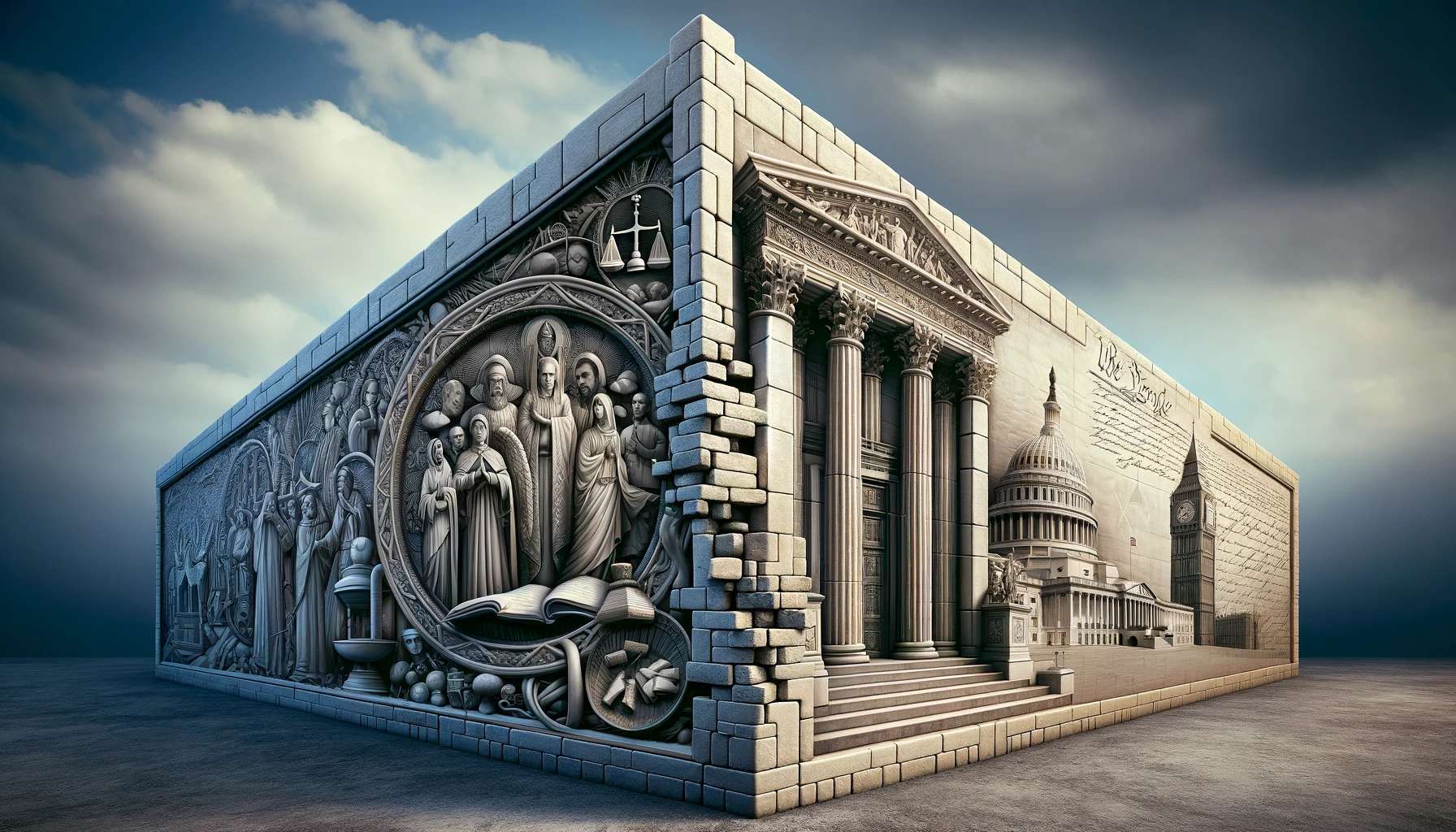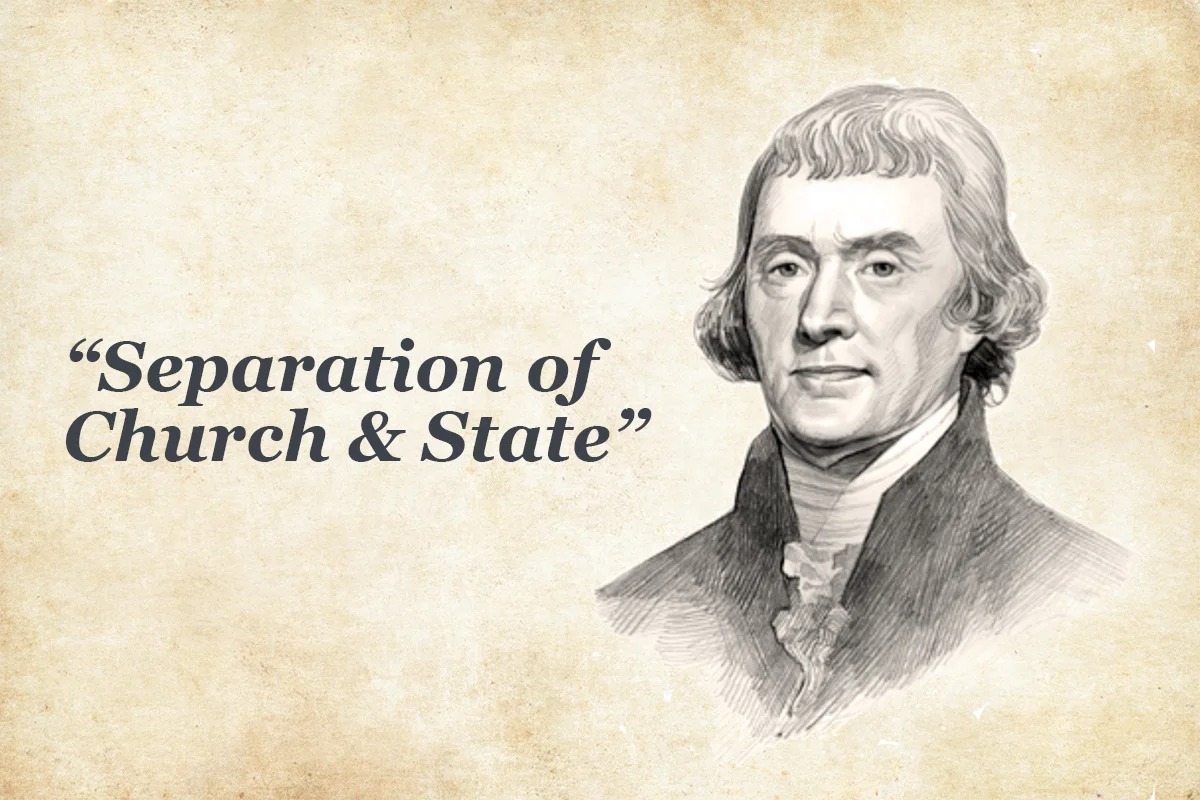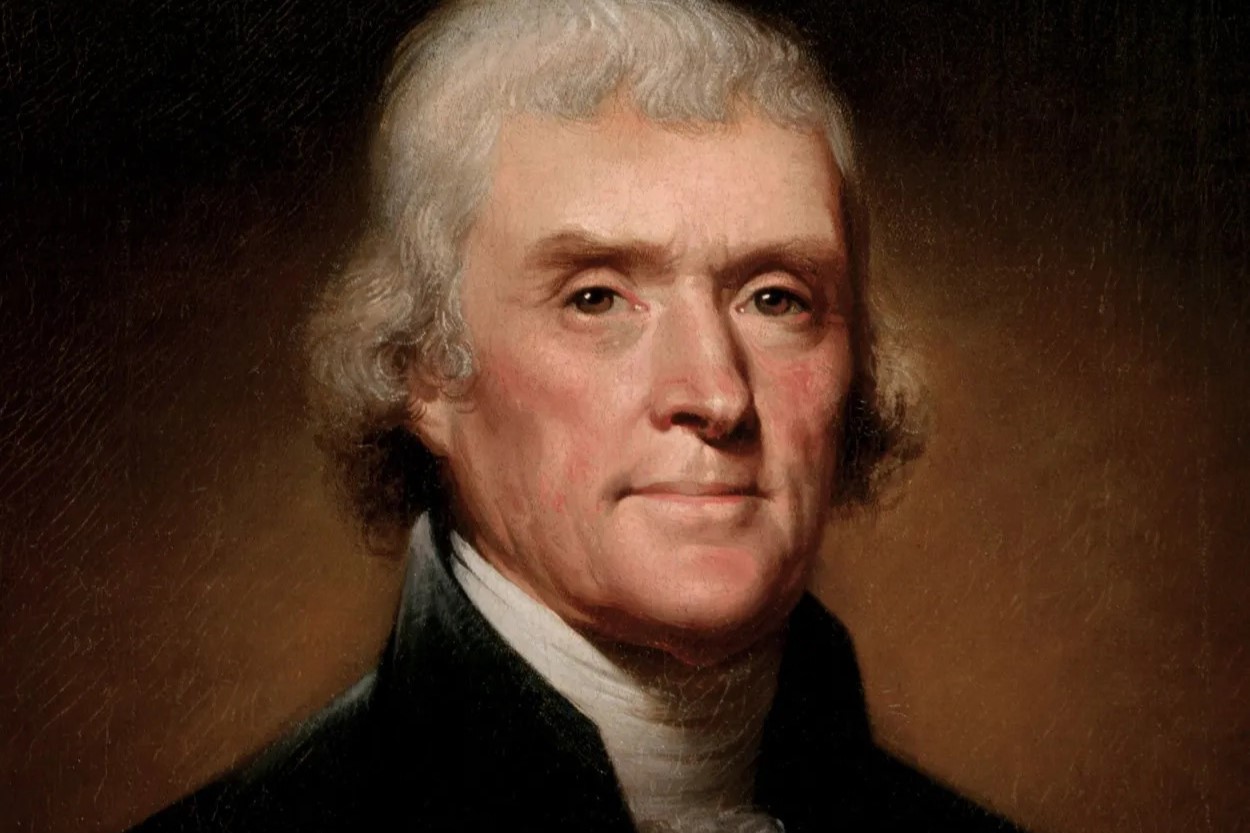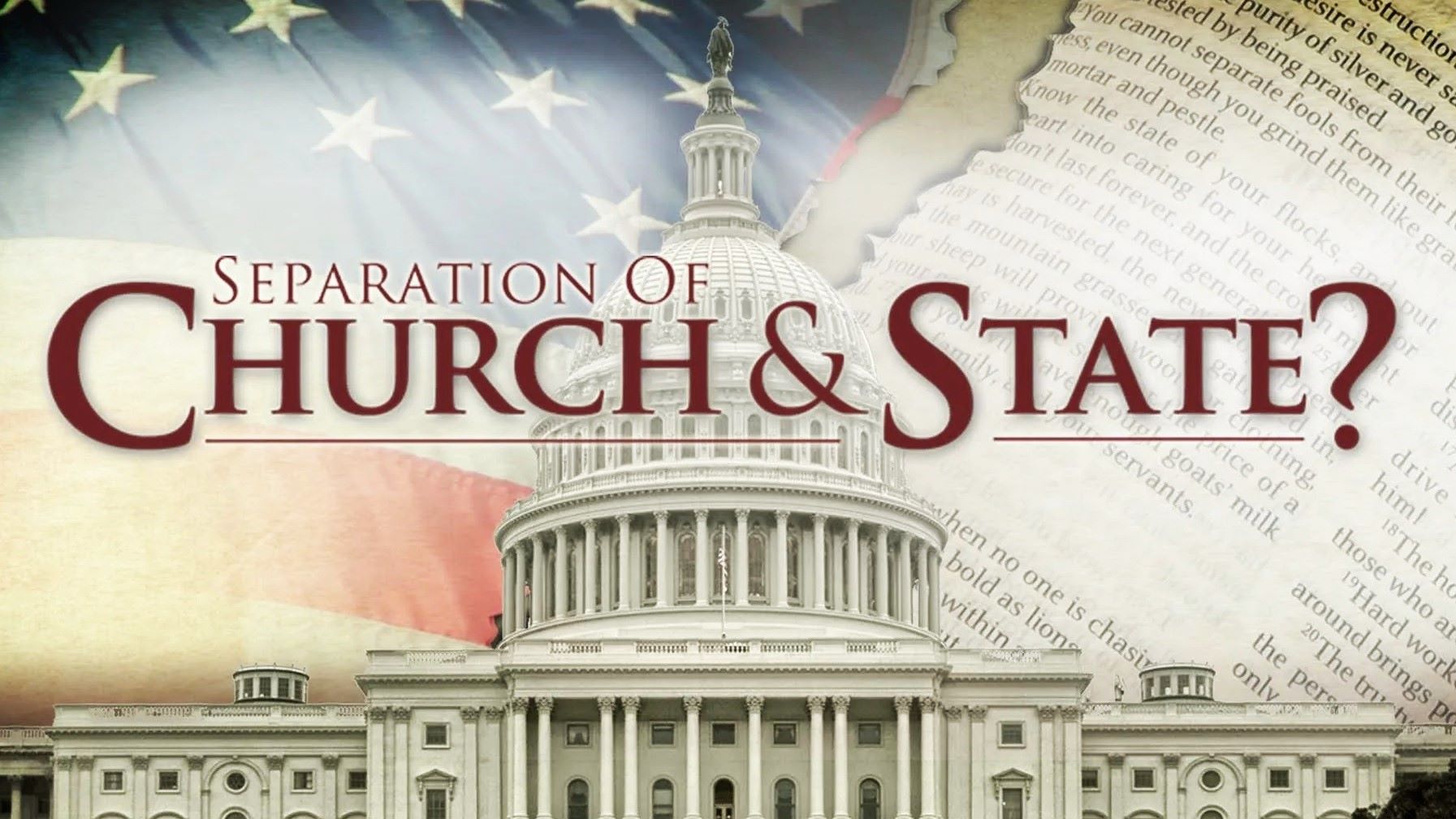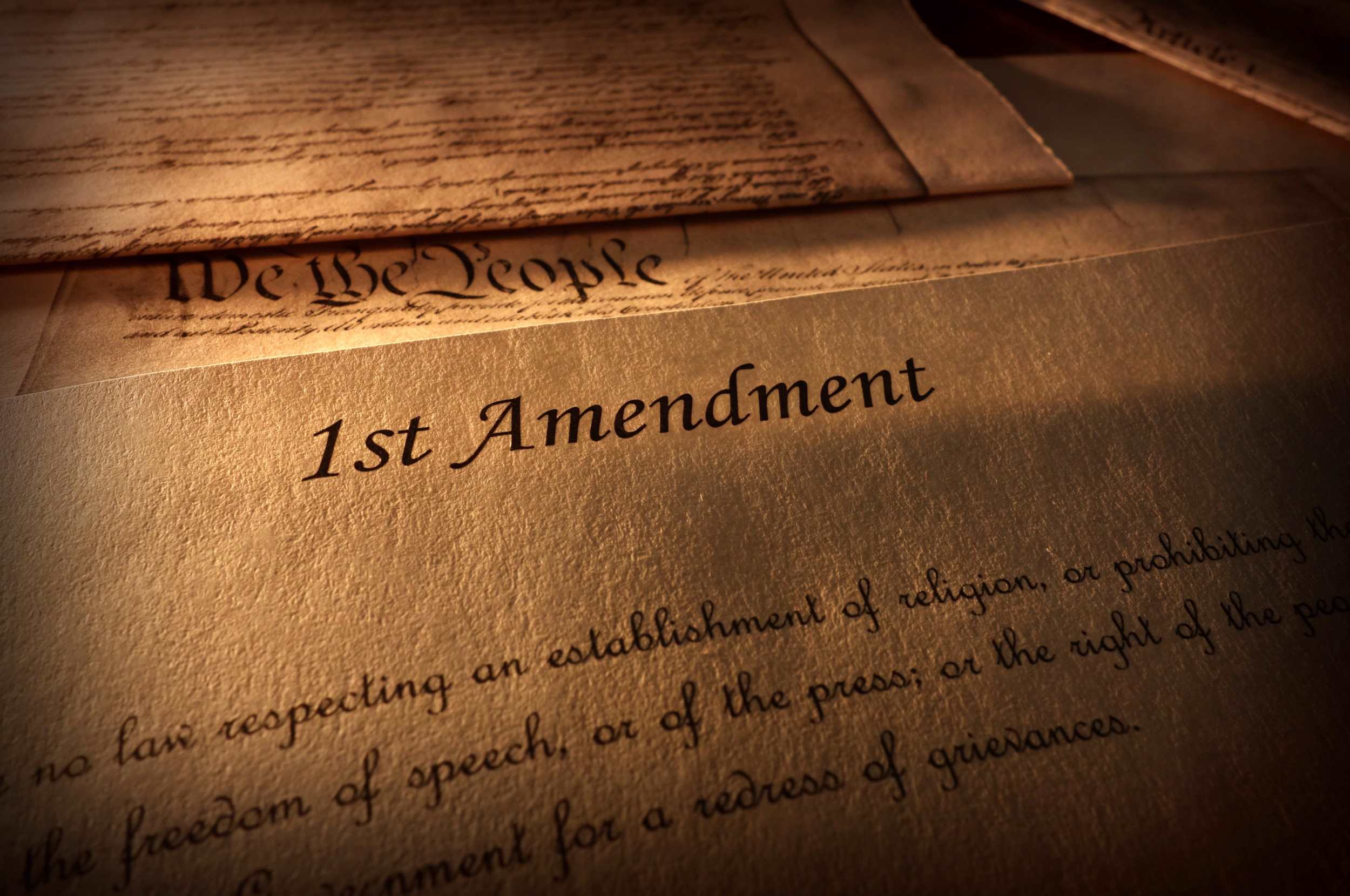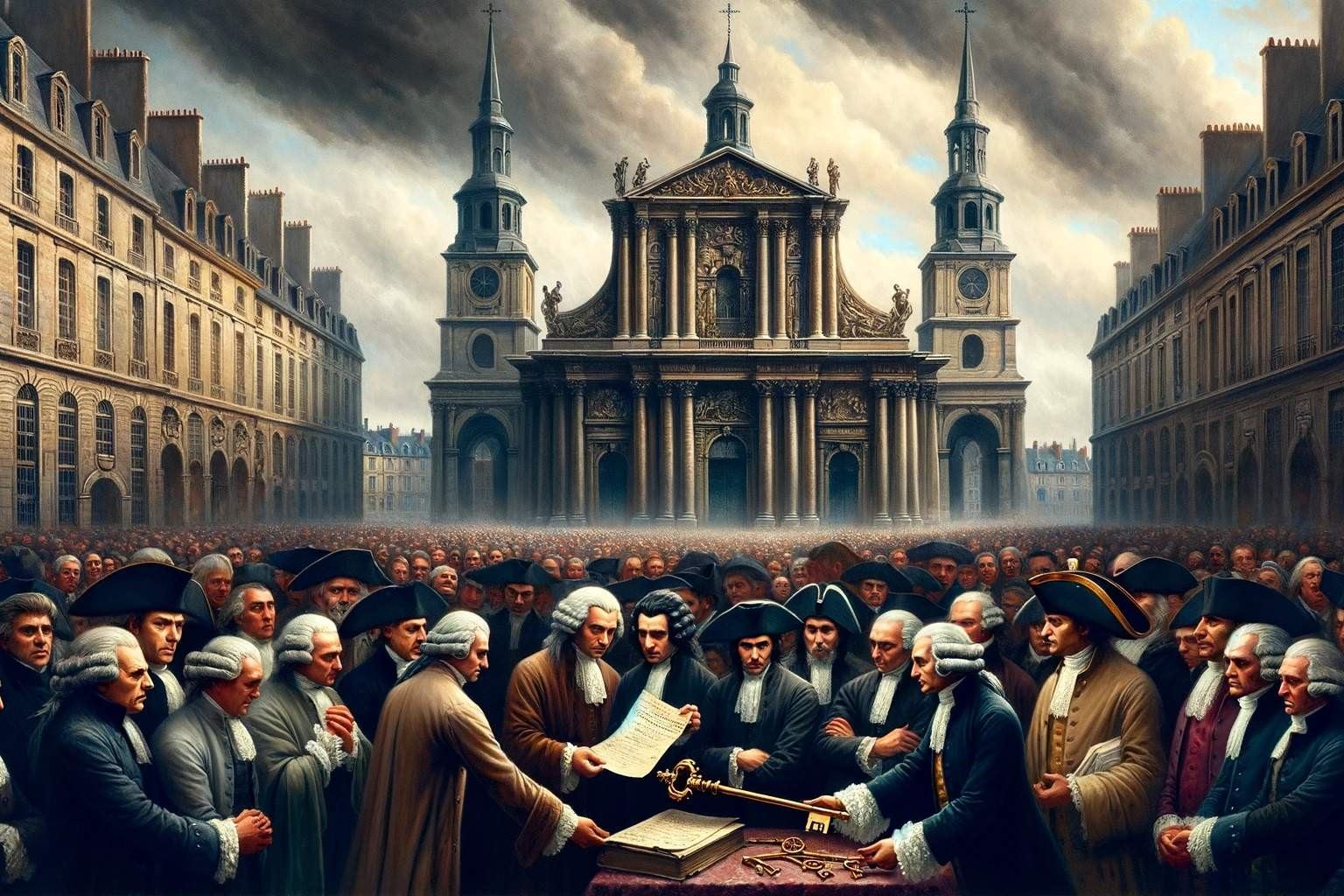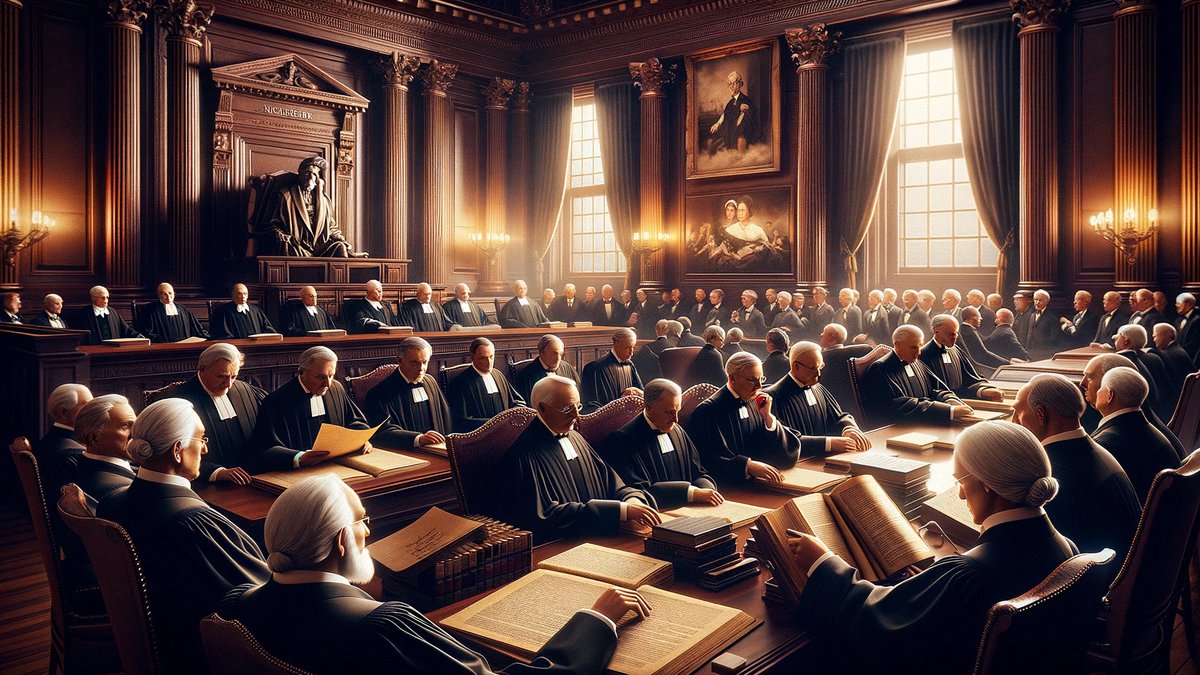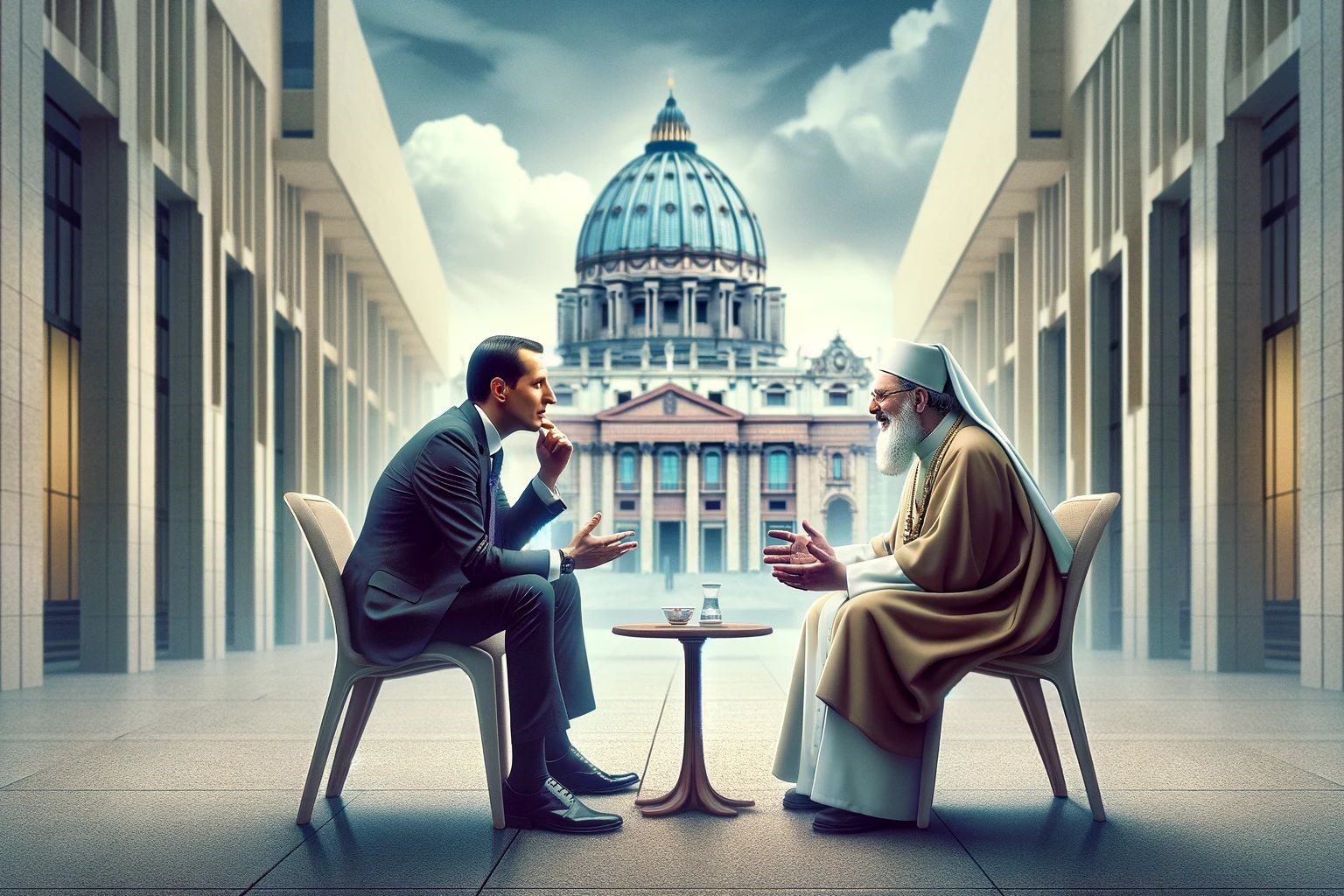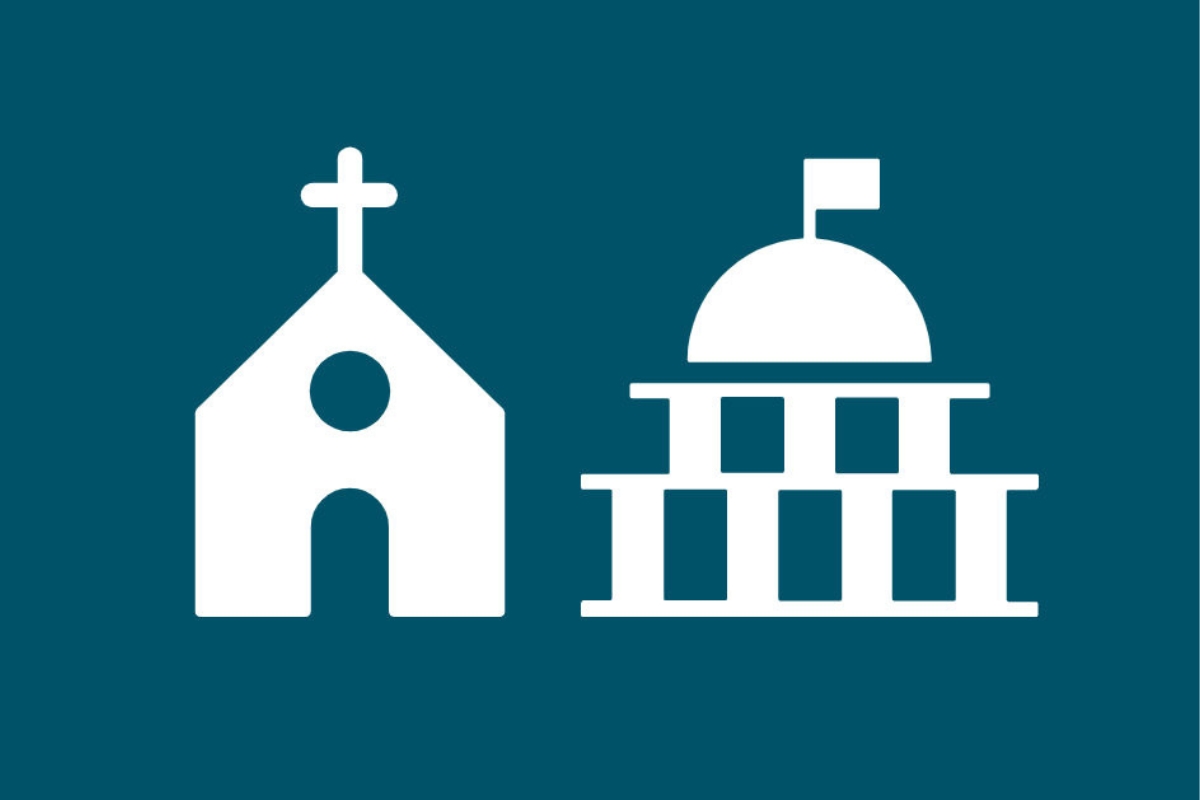Home>Theology and Spirituality>What Is The Islamic Ideal With Regard To The Separation Of Church And State
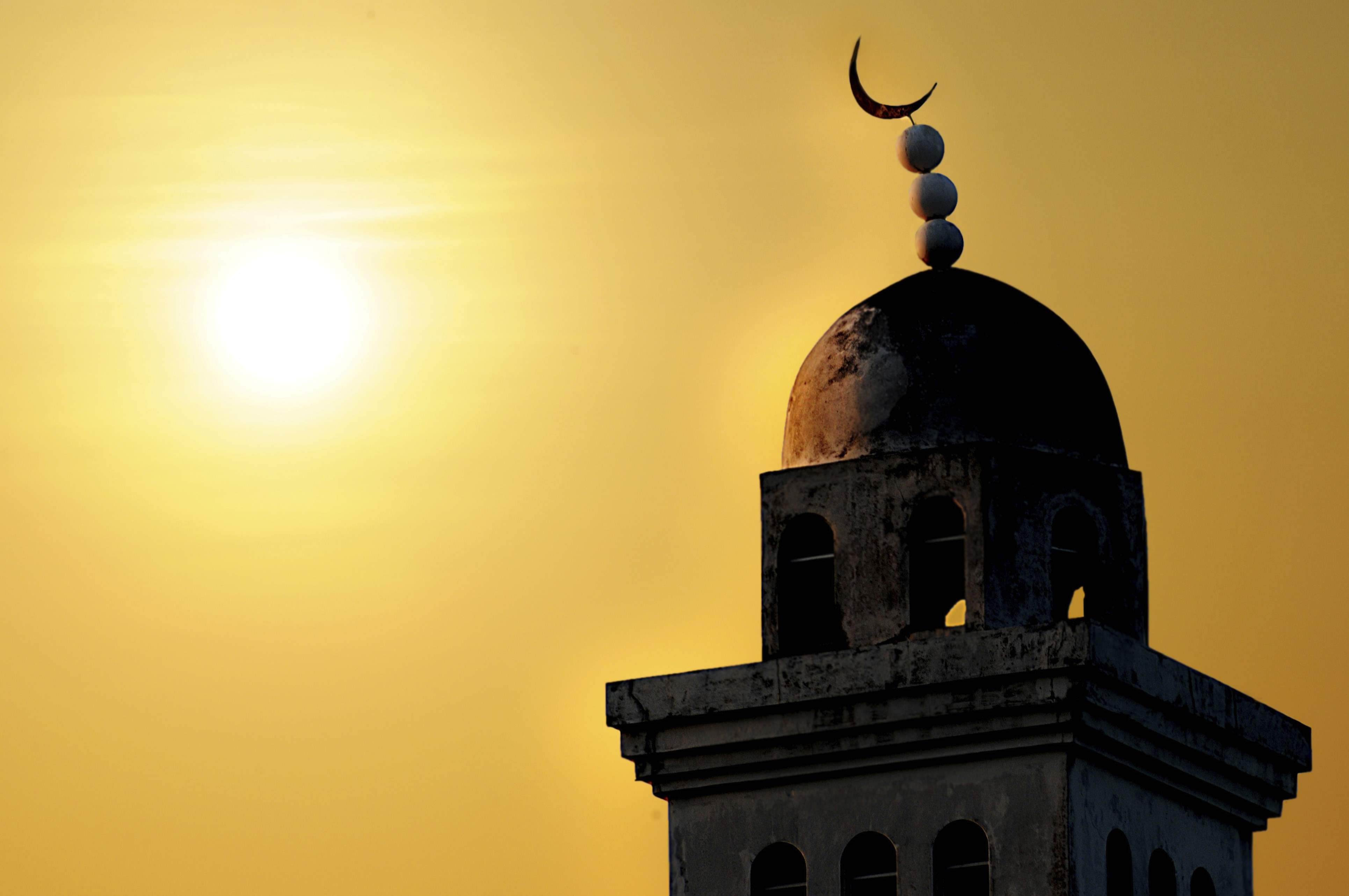

Theology and Spirituality
What Is The Islamic Ideal With Regard To The Separation Of Church And State
Published: February 11, 2024
Peter Smith, Editorial Director at Christian.net, combines deep insights into faith, politics, and culture to lead content creation that resonates widely. Awarded for his contributions to religious discourse, he previously headed a major organization for religious communicators, enhancing dialogue on faith's societal impacts.
Discover the Islamic perspective on the separation of church and state, exploring its theological and spiritual significance. Learn about the ideal balance in governance and religious authority.
(Many of the links in this article redirect to a specific reviewed product. Your purchase of these products through affiliate links helps to generate commission for Christian.net, at no extra cost. Learn more)
Table of Contents
- Introduction
- The Quran and the concept of governance
- The role of the Prophet Muhammad in governance
- The concept of shura in Islamic governance
- The historical development of the separation of church and state in Islamic societies
- Contemporary perspectives on the separation of church and state in Islamic thought
- Conclusion
Introduction
The relationship between religion and governance has been a topic of profound significance throughout human history. In the context of Islam, the interplay between religious principles and political authority has been a subject of considerable debate and contemplation. The concept of the separation of church and state, a fundamental aspect of modern governance in many societies, is also a matter of relevance within Islamic thought.
Exploring the Islamic ideal with regard to the separation of church and state involves delving into the foundational texts of Islam, the Quran and the Hadith, as well as examining the historical and contemporary perspectives on governance within Islamic societies. Understanding the Islamic perspective on this issue requires a nuanced approach that considers the teachings of the Quran, the actions of the Prophet Muhammad, the concept of shura (consultation), and the historical development of governance in Islamic civilizations.
This exploration is not merely an academic exercise; it holds practical implications for contemporary societies where the coexistence of religious principles and political governance is a subject of ongoing discourse. By delving into the Islamic ideal with regard to the separation of church and state, we can gain insights into the principles that have shaped Islamic governance and continue to influence the dynamics of governance in diverse Muslim-majority societies around the world.
As we embark on this exploration, it is essential to approach the topic with an open mind, recognizing the diversity of interpretations and perspectives within Islamic thought. The Islamic ideal with regard to the separation of church and state is not monolithic; rather, it encompasses a spectrum of viewpoints that have evolved over centuries in response to historical, cultural, and geopolitical dynamics. By engaging with this multifaceted discourse, we can gain a deeper appreciation for the complexities and nuances inherent in the relationship between religion and governance in Islamic traditions.
In the subsequent sections of this article, we will delve into the Quranic perspective on governance, the role of the Prophet Muhammad in shaping Islamic governance, the concept of shura as a mechanism for collective decision-making, the historical evolution of governance in Islamic societies, and contemporary perspectives on the separation of church and state within Islamic thought. Through this comprehensive exploration, we aim to illuminate the rich tapestry of Islamic ideals and principles that inform the relationship between religion and governance, offering valuable insights for scholars, policymakers, and individuals seeking a deeper understanding of this pivotal subject.
The Quran and the concept of governance
The Quran, the central religious text of Islam, serves as a foundational source for understanding the principles of governance within the Islamic tradition. Throughout the Quran, there are numerous verses that address the qualities of just and equitable leadership, the importance of consultation, and the ethical responsibilities of those in positions of authority. One of the key themes emphasized in the Quran is the concept of justice, which is intricately linked to the principles of governance and leadership.
Surah An-Nisa (The Women), verse 58, exhorts believers to uphold justice and fairness, stating, "Indeed, Allah commands you to render trusts to whom they are due and when you judge between people to judge with justice." This verse underscores the imperative of justice in governance, emphasizing the ethical obligation of leaders to adjudicate disputes and make decisions with fairness and equity.
Furthermore, the Quran emphasizes the concept of consultation (shura) as a fundamental principle of governance. Surah Ash-Shura (The Consultation), verse 38, highlights the importance of collective decision-making and consultation in matters of public concern, stating, "Those who have responded to their lord and established prayer and whose affair is [determined by] consultation among themselves, and from what we have provided them, they spend." This verse underscores the significance of seeking counsel and engaging in deliberative processes when addressing communal affairs, thereby emphasizing the participatory nature of governance within the Islamic framework.
In addition to justice and consultation, the Quran also articulates the ethical responsibilities of those in positions of authority. Surah Al-Ma'idah (The Table Spread), verse 8, admonishes leaders to uphold integrity and righteousness, stating, "O you who have believed, be persistently standing firm in justice, witnesses for Allah, even if it be against yourselves or parents and relatives. Whether one is rich or poor, Allah is more worthy of both." This verse underscores the ethical imperative for leaders to uphold justice impartially, even if doing so entails personal or familial sacrifice, thereby emphasizing the ethical dimensions of governance within the Islamic paradigm.
The Quranic perspective on governance thus encompasses the principles of justice, consultation, and ethical leadership, providing a foundational framework for understanding the Islamic ideal with regard to the relationship between religion and governance. These principles continue to inform the discourse on governance within Islamic societies, serving as guiding beacons for individuals and communities seeking to uphold the values of justice, consultation, and ethical leadership in the realm of governance.
The role of the Prophet Muhammad in governance
The life of the Prophet Muhammad serves as a profound exemplar of ethical leadership and governance within the Islamic tradition. As the final messenger of Islam, his actions and decisions hold immense significance in shaping the principles of governance and the relationship between religion and political authority. The Prophet Muhammad's role in governance can be elucidated through his conduct as a statesman, lawmaker, and arbiter, offering valuable insights into the Islamic ideal with regard to the interplay between religious principles and governance.
During his time in Medina, the Prophet Muhammad established a comprehensive system of governance that integrated religious precepts with administrative functions. He served as the head of state, overseeing matters of public welfare, justice, and diplomacy, while also upholding the spiritual guidance enshrined in the Quran. His governance was characterized by a commitment to justice, compassion, and consultation, reflecting the Quranic principles that emphasize the equitable treatment of individuals and the importance of collective decision-making.
The Prophet Muhammad's approach to governance was marked by inclusivity and a deep sense of responsibility toward the welfare of the community. He actively sought the counsel of his companions and the broader community, exemplifying the Quranic principle of shura (consultation) in matters of governance. This participatory approach not only fostered a sense of collective ownership and responsibility but also underscored the importance of inclusive decision-making processes within the governance framework.
Furthermore, the Prophet Muhammad's governance was underpinned by a profound commitment to upholding the rights of individuals, irrespective of their social status or background. His emphasis on justice, mercy, and the equitable treatment of all members of society set a precedent for ethical governance that continues to resonate within Islamic thought. His leadership style exemplified the Quranic injunction to "stand persistently firm in justice" and served as a model for subsequent generations of leaders within Islamic societies.
The Prophet Muhammad's role in governance thus embodies the Islamic ideal of harmonizing religious principles with administrative functions, emphasizing justice, consultation, and ethical leadership as foundational pillars of governance. His legacy continues to inspire reflections on the relationship between religion and governance, offering timeless lessons for individuals and societies seeking to navigate the complexities of governance while upholding the values enshrined in Islamic teachings.
The concept of shura in Islamic governance
The concept of shura, or consultation, holds profound significance within the framework of Islamic governance. Rooted in the Quranic injunction to engage in collective decision-making and seek counsel on matters of communal importance, shura embodies the participatory ethos that underpins governance in Islamic thought. The principle of shura serves as a cornerstone of inclusive decision-making, reflecting the imperative of deliberation, consensus-building, and the equitable representation of diverse perspectives within the governance process.
Shura is not merely a procedural formality; rather, it embodies the ethical imperative of engaging in consultative processes that honor the voices and insights of all stakeholders within the community. The Quran underscores the importance of shura in Surah Ash-Shura (The Consultation), verse 38, stating, "Their affairs are conducted through consultation among themselves." This verse highlights the participatory nature of governance and emphasizes the ethical dimensions of seeking collective counsel in matters of public concern.
The concept of shura extends beyond the realm of formal decision-making processes; it encompasses a culture of inclusivity, transparency, and accountability within governance structures. By fostering an environment where diverse voices are heard and valued, shura serves to nurture a sense of collective ownership and responsibility, thereby strengthening the social fabric of the community. Moreover, shura aligns with the Quranic emphasis on justice and fairness, as inclusive decision-making processes contribute to the equitable treatment of individuals and the promotion of communal welfare.
In the context of Islamic history, the practice of shura has manifested in various forms, ranging from the consultative processes employed by the Prophet Muhammad to the deliberative mechanisms within early Islamic polities. The legacy of shura as a guiding principle of governance has endured across centuries, shaping the administrative structures and decision-making frameworks of Islamic civilizations.
Contemporary perspectives on shura continue to inform governance in diverse Muslim-majority societies, where efforts to uphold the principles of inclusivity, consultation, and ethical leadership remain integral to the governance paradigm. By embracing the concept of shura, Islamic governance seeks to foster a culture of participatory decision-making, ethical accountability, and the equitable representation of diverse voices, thereby exemplifying the enduring relevance of shura as a foundational principle within the Islamic ideal of governance.
The historical development of the separation of church and state in Islamic societies
The historical development of the separation of church and state in Islamic societies is a complex and multifaceted narrative that reflects the diverse experiences and trajectories of governance within Muslim-majority civilizations. Unlike the Western concept of the separation of church and state, which emerged in the context of medieval Europe's struggle for institutional autonomy and religious freedom, the historical evolution of governance in Islamic societies has been shaped by a distinct set of dynamics, including the interplay of religious authority, political governance, and cultural traditions.
In the early centuries of Islam, the concept of governance was deeply intertwined with religious authority, as the caliphs and rulers derived their legitimacy from their adherence to Islamic principles and their role as guardians of the faith. The unity of religious and political authority was a defining feature of the early Islamic polities, where the caliphs served as both temporal and spiritual leaders, overseeing matters of governance and religious guidance. This fusion of religious and political authority reflected the prevailing sociopolitical context of the time and the symbiotic relationship between Islam as a faith and the governance of Muslim societies.
However, as Islamic civilizations expanded and diversified, the dynamics of governance underwent significant transformations, leading to the emergence of distinct models of governance and the evolution of the relationship between religious and political authority. The development of diverse schools of Islamic jurisprudence, the establishment of administrative institutions, and the proliferation of cultural and intellectual exchange contributed to the nuanced articulation of the separation of church and state within Islamic societies.
One notable example of the historical development of the separation of church and state in Islamic societies can be observed in the Ottoman Empire, where the institution of the caliphate embodied both religious and political authority. The Ottoman caliphs wielded significant influence over matters of governance and religious interpretation, yet the administrative structures of the empire also encompassed distinct bureaucratic institutions and administrative practices that operated independently of religious oversight. This duality of religious and administrative authority within the Ottoman Empire exemplifies the intricate interplay between religious and political governance in Islamic societies and the evolving conceptions of the separation of church and state.
Furthermore, the historical experiences of Islamic governance in regions such as Andalusia, the Indian subcontinent, and the Middle East have yielded diverse manifestations of the relationship between religious and political authority, reflecting the dynamic interplay of cultural, intellectual, and geopolitical factors. The coexistence of religious pluralism, the patronage of scholarly institutions, and the diffusion of administrative practices have contributed to the multifaceted historical development of the separation of church and state within Islamic societies, engendering a rich tapestry of governance models and conceptions of religious authority.
The historical development of the separation of church and state in Islamic societies thus reflects the intricate interplay of religious principles, political governance, and cultural dynamics, yielding diverse manifestations of the relationship between religious and political authority. This historical trajectory continues to inform contemporary discourses on governance and the relationship between religion and state in Muslim-majority societies, underscoring the enduring relevance of historical experiences in shaping the complexities of governance within Islamic traditions.
Contemporary perspectives on the separation of church and state in Islamic thought
In contemporary Islamic thought, the discourse on the separation of church and state reflects a spectrum of perspectives that are shaped by diverse sociopolitical contexts, theological interpretations, and historical experiences. The ongoing dialogue on the relationship between religious principles and political governance within Islamic societies encompasses a range of viewpoints, each offering nuanced insights into the complexities of modern governance and the role of religion in the public sphere.
One contemporary perspective emphasizes the compatibility of Islamic principles with the principles of good governance, ethical leadership, and the equitable treatment of all members of society. Proponents of this view argue that the ethical precepts enshrined in the Quran, such as justice, compassion, and consultation, are inherently conducive to the establishment of just and inclusive governance structures. They contend that the ethical imperatives of Islamic teachings can serve as guiding principles for policymakers and leaders, fostering a governance paradigm that upholds the values of justice, accountability, and the welfare of the community.
Conversely, another perspective advocates for a clear delineation between religious authority and political governance, emphasizing the need to safeguard the autonomy of state institutions from undue religious influence. This viewpoint underscores the importance of institutional mechanisms that ensure the protection of individual rights, religious freedoms, and the pluralistic fabric of society. Advocates of this perspective argue that a functional separation of church and state can facilitate the coexistence of diverse religious beliefs within the public sphere, thereby promoting social harmony and civic cohesion.
Furthermore, contemporary Islamic thought also encompasses discussions on the role of religious scholars and institutions in shaping public policy and governance. The question of the extent to which religious authorities should be involved in matters of state governance remains a subject of deliberation, with varying interpretations regarding the appropriate interface between religious guidance and political decision-making.
Amidst these diverse perspectives, the contemporary discourse on the separation of church and state in Islamic thought reflects a dynamic engagement with the evolving realities of governance, citizenship, and religious pluralism. The multifaceted nature of this discourse underscores the ongoing relevance of Islamic principles in informing governance paradigms, while also addressing the imperative of adapting to the complexities of modern governance within diverse sociocultural contexts.
The contemporary perspectives on the separation of church and state in Islamic thought thus exemplify the dynamic interplay of religious principles, governance dynamics, and sociopolitical exigencies, offering valuable insights for scholars, policymakers, and individuals seeking to navigate the complexities of governance while upholding the values enshrined in Islamic teachings.
Conclusion
The exploration of the Islamic ideal with regard to the separation of church and state offers a profound journey through the foundational principles, historical experiences, and contemporary perspectives that shape the relationship between religion and governance within Islamic thought. From the Quranic emphasis on justice, consultation, and ethical leadership to the exemplary conduct of the Prophet Muhammad in governance, the Islamic tradition provides a rich tapestry of insights into the principles that underpin the interplay between religious precepts and political authority.
The concept of shura, as a cornerstone of inclusive decision-making, reflects the participatory ethos that underpins governance in Islamic thought, emphasizing the imperative of deliberation, consensus-building, and the equitable representation of diverse perspectives within the governance process. Furthermore, the historical development of the separation of church and state in Islamic societies reflects the intricate interplay of religious principles, political governance, and cultural dynamics, yielding diverse manifestations of the relationship between religious and political authority.
In contemporary Islamic thought, the discourse on the separation of church and state encompasses a spectrum of perspectives, each offering nuanced insights into the complexities of modern governance and the role of religion in the public sphere. The ongoing dialogue reflects a dynamic engagement with the evolving realities of governance, citizenship, and religious pluralism, underscoring the enduring relevance of Islamic principles in informing governance paradigms.
As we conclude this exploration, it is evident that the Islamic ideal with regard to the separation of church and state is not a static concept; rather, it embodies a dynamic interplay of foundational principles, historical experiences, and contemporary perspectives that continue to shape the discourse on governance within Islamic societies. By engaging with this multifaceted discourse, we gain a deeper appreciation for the complexities and nuances inherent in the relationship between religion and governance in Islamic traditions, offering valuable insights for scholars, policymakers, and individuals seeking a deeper understanding of this pivotal subject.
